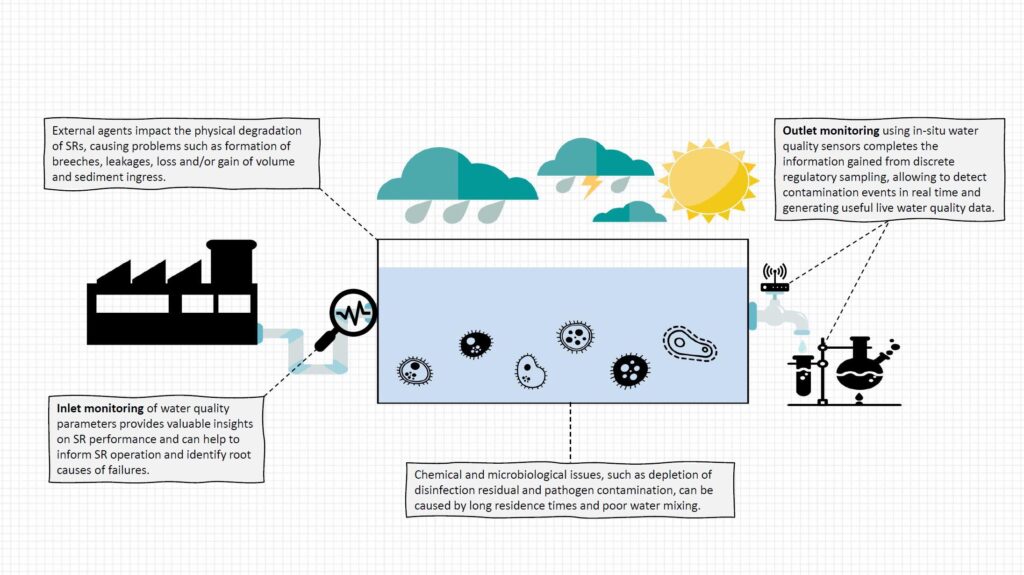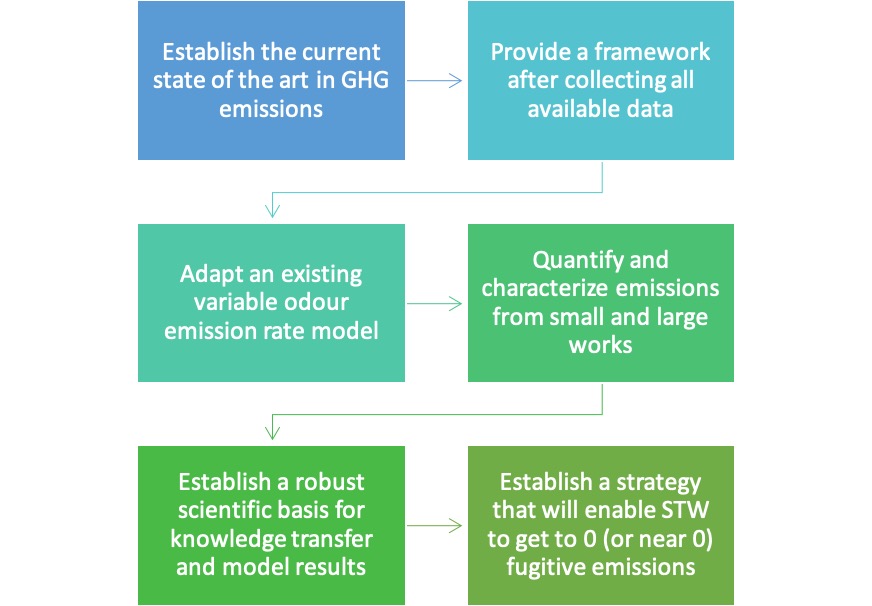Meet Clervie Genevois
Email: cgenevois1@sheffield.ac.uk
Academic and Industrial affiliations: The University of Sheffield and DCWW Welsh Water
Title of research project: Service Reservoir Integrity

Service Reservoirs (SRs) are critical infrastructures within Drinking Water Distribution Systems (DWDS) and are known to contribute to the degradation of drinking water from treatment to tap. Maintenance of SRs is currently carried out on purely time-based schedules but this approach is not ideal: inspections and cleaning could be carried out when unnecessary, resulting in higher maintenance costs, or failures could run for a long time prior to intervention and cause further issues downstream the DWDS. Consequently, there is a need to move beyond time-based maintenance and towards a more efficient preventative system. This research aims to address the knowledge gaps in assessing SR performance and identifying the root causes of failures, generating information to inform proactive asset maintenance. The starting steps in developing this project have been to review the main problems affecting SRs and their causes, investigating real time monitoring technologies and analysing historical microbial data collected at a case study. First results suggest that analysing time series of bacteria concentration, counting significant peaks at both the inlet and outlet, can serve as a basic assessment of SR performance; however, this project aims to go beyond only bacteriological water quality to understand the big picture of SR performance. To reach this objective, future steps will be to explore multiple physical, chemical, and microbial parameters to collectively indicate performance and condition of SRs.



